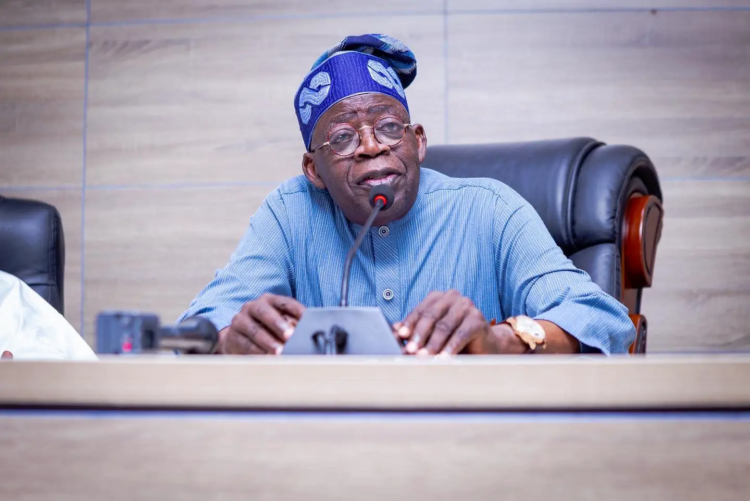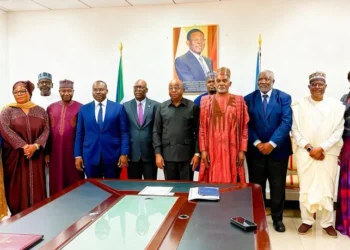President Bola Ahmed Tinubu lauded the Nigeria’s Customs Service’s (NCS) exemplary contributions to the nation’s economic agenda.
Speaking at the 2024 Comptroller-General of Customs Conference held at the Transcorp Hilton Hotel in Abuja on November 13, President Tinubu highlighted the essential role that government institutions must play in the country’s development.
“I am pleased to note that the Nigeria Customs Service is one of the agencies that has risen to this expectation, demonstrating how government institutions can effectively contribute to our economic transformation agenda while fulfilling their core mandates,” he stated.
The President’s remarks underscored the progress made under his administration’s economic reforms.
He recounted bold measures such as the removal of fuel subsidies and the unification of the exchange rate system—steps that, while challenging in the short term, were pivotal for long-term sustainable growth.
These reforms have begun yielding tangible benefits, including a surge in foreign direct investment surpassing $30 billion.
This influx has reinforced Nigeria’s position as a trade-friendly nation and highlighted the effectiveness of the strategic policy shifts.
Central to this success, according to Tinubu, is the proactive alignment of government agencies with national economic objectives.
The Nigeria Customs Service’s recent modernization initiatives—including the introduction of the Advanced Ruling system and the Authorised Economic Operator Program—demonstrate its commitment to facilitating trade and improving operational efficiency. These programs align with global standards, enhancing both revenue generation and border security.
President Tinubu concluded by emphasizing the importance of continued support and collaboration.
He urged conference participants to deliberate on strategic approaches that strengthen partnerships and harness opportunities in regional and continental markets, particularly under the African Continental Free Trade Area (AfCFTA).
The outcomes, he said, should chart a course for further trade facilitation while maintaining robust regulatory compliance, ensuring Nigeria’s sustained progress on the path of economic transformation.






























































